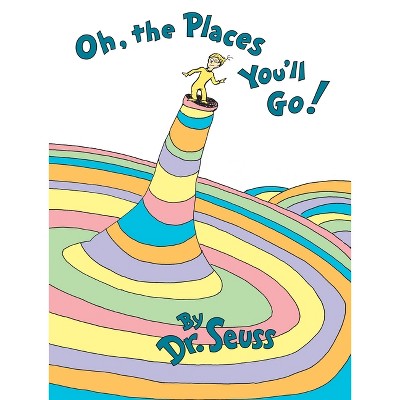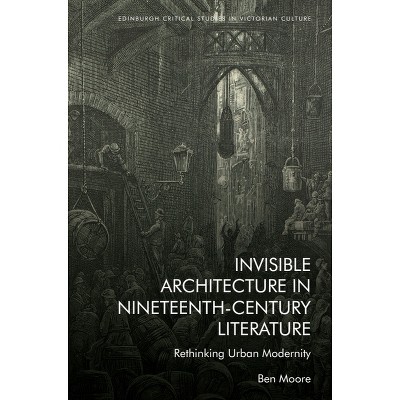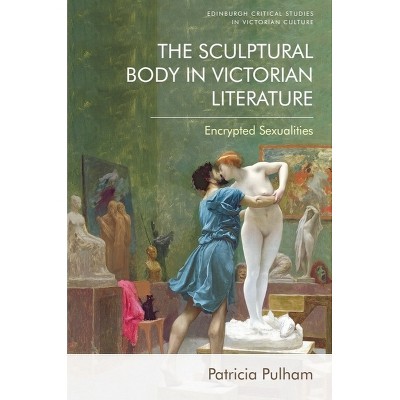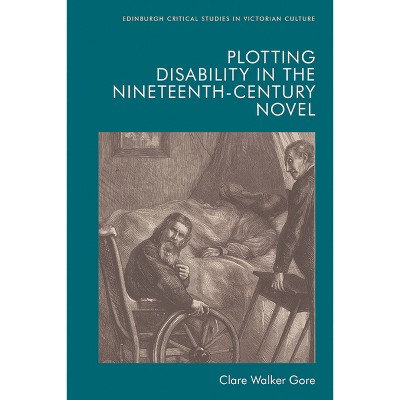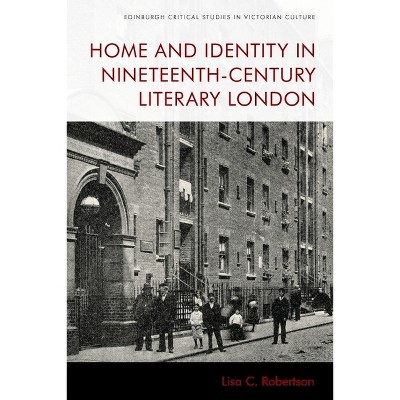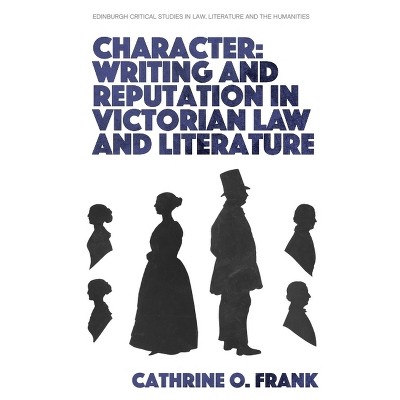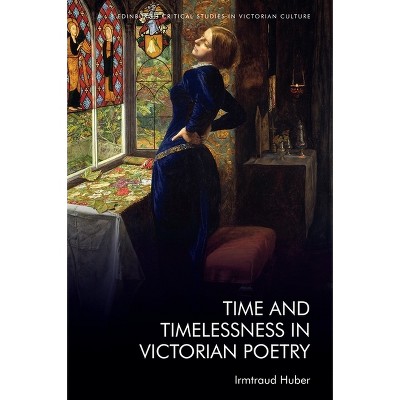Italian Politics and Nineteenth-Century British Literature and Culture - (Edinburgh Critical Studies in Victorian Culture) by Patricia Cove

About this item
Highlights
- A transnational approach to Risorgimento culture's contentious and exhilarating nation-building enterpriseKey FeaturesRe-imagines the parameters and duration of the relationship between the Risorgimento and British culture to revitalise critical engagement with the political dimension of nineteenth-century Anglo-Italian studiesMaps the emergence and evolution of major nineteenth-century forms and genres according to the reverberations of Italian politics that shaped the literary landscapeCovers a wide range of diverse sources, including fiction, poetry and polemical and journalistic non-fiction prose, adding to an existing critical debate focused on poetryRethinks nineteenth-century British political debates surrounding liberalism, the nation and the rights of citizens and refugees in light of the seismic geopolitical shift of Italian unificationCrossing borders, political divides and genres, this book examines the intersections among literary works by Elizabeth Barrett Browning, Mary Shelley and Wilkie Collins, journalism, parliamentary records and pamphlets, to establish Britain's imaginative investment in the seismic geopolitical realignment of Italian unification.Revitalising critical narratives surrounding the mutually constitutive Anglo-Italian relationship, Cove argues that forging a new state demands both making and unmaking; as the Risorgimento re-mapped Europe's geopolitical reality, it also reframed how the British saw themselves, their politics and their place within Europe.
- About the Author: Patricia Cove is a Writing Advisor at the Dalhousie University Agricultural Campus in Nova Scotia, Canada.
- 200 Pages
- Literary Criticism, European
- Series Name: Edinburgh Critical Studies in Victorian Culture
Description
About the Book
This book examines the intersections among literary works by Elizabeth Barrett Browning, Mary Shelley and Wilkie Collins, journalism, parliamentary records and pamphlets, to establish Britain's imaginative investment in the seismic geopolitical realignment of Italian unification.
Book Synopsis
A transnational approach to Risorgimento culture's contentious and exhilarating nation-building enterprise
Key Features
Re-imagines the parameters and duration of the relationship between the Risorgimento and British culture to revitalise critical engagement with the political dimension of nineteenth-century Anglo-Italian studiesMaps the emergence and evolution of major nineteenth-century forms and genres according to the reverberations of Italian politics that shaped the literary landscapeCovers a wide range of diverse sources, including fiction, poetry and polemical and journalistic non-fiction prose, adding to an existing critical debate focused on poetryRethinks nineteenth-century British political debates surrounding liberalism, the nation and the rights of citizens and refugees in light of the seismic geopolitical shift of Italian unificationCrossing borders, political divides and genres, this book examines the intersections among literary works by Elizabeth Barrett Browning, Mary Shelley and Wilkie Collins, journalism, parliamentary records and pamphlets, to establish Britain's imaginative investment in the seismic geopolitical realignment of Italian unification.
Revitalising critical narratives surrounding the mutually constitutive Anglo-Italian relationship, Cove argues that forging a new state demands both making and unmaking; as the Risorgimento re-mapped Europe's geopolitical reality, it also reframed how the British saw themselves, their politics and their place within Europe.
From the Back Cover
'Ranging from the 1815 Congress of Vienna to the 1861 creation of the Kingdom of Italy, Patricia Cove's richly detailed "case studies" of historical novels, sensation fiction, poems and travelogues illumine the diversity of British, Anglo-Italian and Anglo-Irish literary engagements with the fraught politics and intergenerational dynamics of the Risorgimento.' Marjorie Stone, Dalhousie University A transnational approach to Risorgimento culture's contentious and exhilarating nation-building enterprise Crossing borders, political divides and genres, this book examines the intersections among literary works by Elizabeth Barrett Browning, Mary Shelley and Wilkie Collins, journalism, parliamentary records and pamphlets to establish Britain's imaginative investment in the seismic geopolitical realignment of Italian unification. Revitalising critical narratives surrounding the mutually constitutive Anglo-Italian relationship, Cove argues that forging a new state demands both making and unmaking; as the Risorgimento re-mapped Europe's geopolitical reality, it also reframed how the British saw themselves, their politics and their place within Europe. Patricia Cove is a Writing Advisor at the Dalhousie University Agricultural Campus in Nova Scotia, Canada. Cover image: Five Days of Milan, Carl Stragliati (1868-1925) (c) akg-images / Fototeca Gilardi Cover design: www.hayesdesign.co.uk [EUP logo] edinburghuniversitypress.com ISBN 978-1-4744-4724-9 BarcodeReview Quotes
Ranging from the 1815 Congress of Vienna to the 1861 creation of the Kingdom of Italy, Patricia Cove's richly detailed "case studies" of historical novels, sensation fiction, poems, and travelogues illumine the diversity of British, Anglo-Italian, and Anglo-Irish literary engagements with the fraught politics and intergenerational dynamics of the Risorgimento.-- "Marjorie Stone, Dalhousie University"
About the Author
Patricia Cove is a Writing Advisor at the Dalhousie University Agricultural Campus in Nova Scotia, Canada. She conducted this research as a Social Sciences and Humanities Research Council of Canada Postdoctoral Fellow at the University of Victoria on Vancouver Island. Her research on Victorian and Romantic literature appears in Journal of Victorian Culture, Nineteenth-Century Contexts, Victorian Literature and Culture, Gothic Studies and European Romantic Review.
Shipping details
Return details
Trending Fiction

